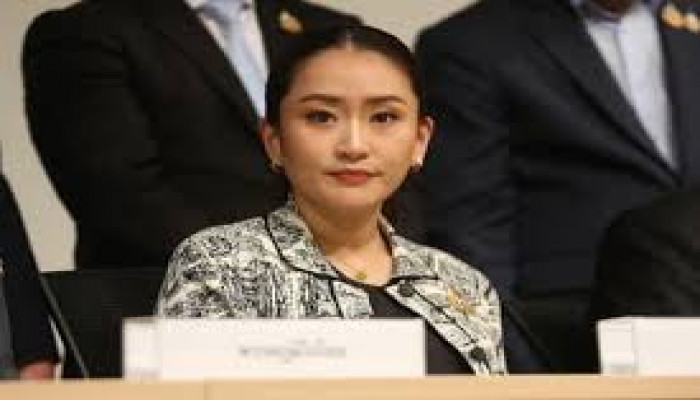Paetongtarn Shinawatra becomes Thailand's youngest prime minister, faces challenge of balancing alliances and economic reform
- In Reports
- 09:19 PM, Aug 16, 2024
- Myind Staff
Thailand's new prime minister, Paetongtarn Shinawatra, has made history as the youngest person to assume the role and the second woman to hold the position. A member of the influential Shinawatra family, Paetongtarn steps into office with the goal of restoring stability after her predecessor was ousted by a court over ethics violations. At 37, she follows in the footsteps of her family members, including her father, former prime minister Thaksin Shinawatra, who served from 2001 to 2006 before being deposed in a military coup. Thaksin returned to Thailand last year after 15 years of self-imposed exile and is now expected to play a more significant role in the nation's political landscape.
One of Paetongtarn's key challenges will be addressing voters' concerns about rising living costs and reassuring foreign investors wary of Thailand's unpredictable political climate. Known by her nickname "Ing," she is the youngest daughter of Thaksin Shinawatra, the patriarch of the political dynasty that has been a dominant force in Thai elections since the early 2000s.
Paetongtarn Shinawatra is married to Pidok Sooksawas, a commercial pilot, and the couple has two children, including a baby boy born while she was on the campaign trail for last year’s election. Before entering politics, most of Paetongtarn's professional experience was rooted in the Shinawatra family's business empire, which includes ventures in real estate, hospitality, telecommunications, and a golf course. Until earlier this year, she served as the CEO of the hotel business of Rende Development Co., a company run by her sister, Pintongta Shinawatra Kunakornwong, with the luxurious Rosewood Hotel in Bangkok being one of their flagship projects.
Currently, Paetongtarn Shinawatra is the largest shareholder of the publicly traded property firm SC Asset Corp. Pcl, holding a 28.5% stake valued at approximately 5.2 billion baht ($152 million), according to data compiled by Bloomberg. Before assuming the role of prime minister, she will be required to relinquish her business positions and comply with share ownership regulations as mandated by Thai law.
Paetongtarn's entry into politics was shaped by her close association with her father's career. At just eight years old, she accompanied Thaksin during his first government role as foreign minister. By the age of 20, she found herself in a safe house as military tanks rolled through Bangkok during the coup that ousted her father. Two years later, she witnessed Thaksin leave Thailand to avoid a corruption conviction, which he claimed was politically motivated.
Paetongtarn formally launched her political career in 2021 when she joined the Pheu Thai Party as a director of the innovation and inclusiveness committee. Two years later, she became the face of Pheu Thai’s pre-election campaign and ran as one of the party's three prime ministerial candidates, pledging to end nearly a decade of military-aligned rule under Prayuth Chan-Ocha. Paetongtarn vowed to break the cycle of coups that have plagued her family, with her father Thaksin ousted in 2006 and her aunt Yingluck's government toppled in 2014. The Shinawatras have long been seen as a threat by the royalist elites who control some of Thailand's most powerful institutions and businesses.
Ironically, Paetongtarn now finds herself relying on the pro-royalist conservatives with whom Pheu Thai formed a government. This alliance emerged after her father, Thaksin, struck a deal last year to return to Thailand following more than a decade in exile while facing corruption charges. Paetongtarn’s victory, which helped secure Pheu Thai's leadership in the new government, signals continuity with the policies pursued by Srettha's administration. Her government is expected to focus on stimulating growth through looser fiscal policies while addressing the high cost of living and near-record household debt. Paetongtarn has also advocated for lower interest rates and criticised the central bank, arguing that its autonomy has become an "obstacle" to resolving the country's economic challenges.
Image source: The Guardian







Comments